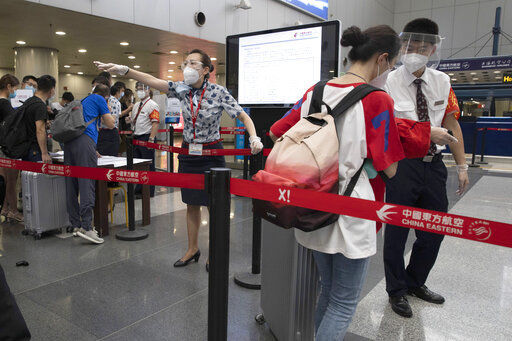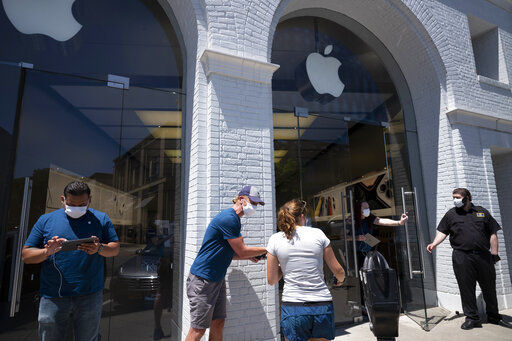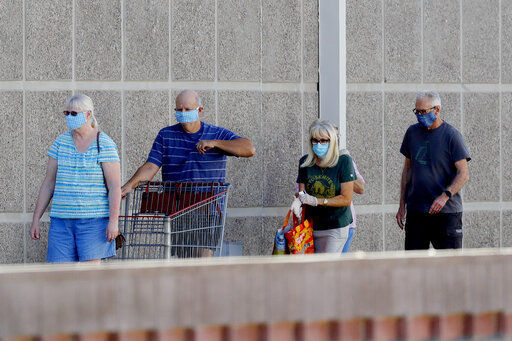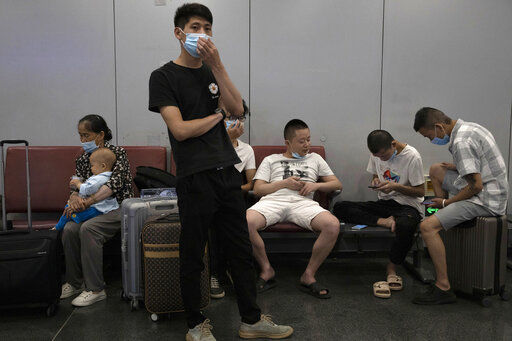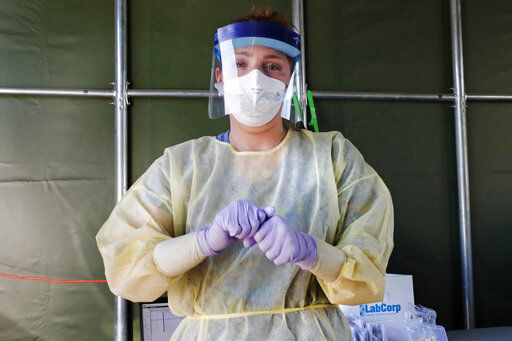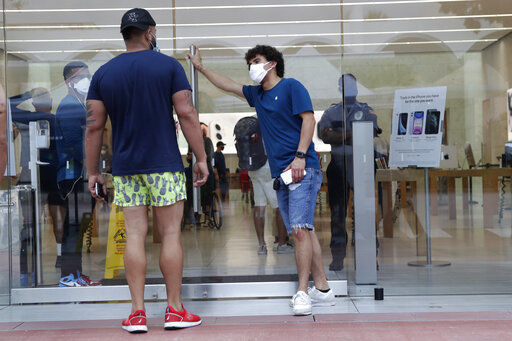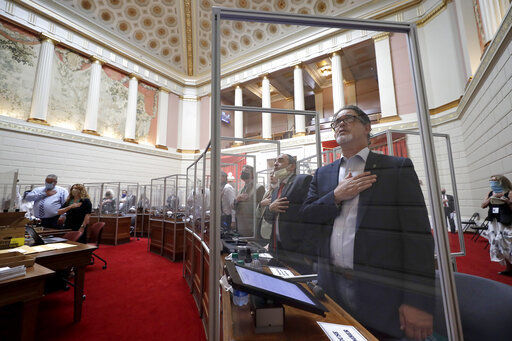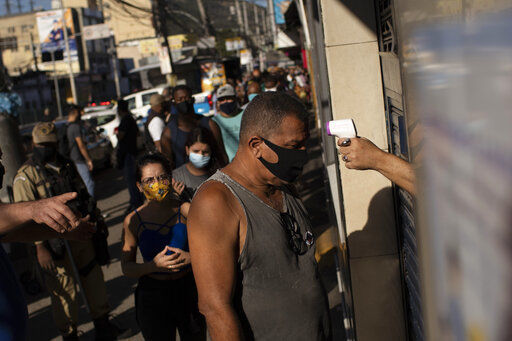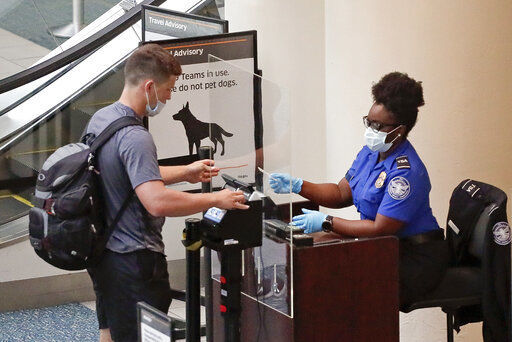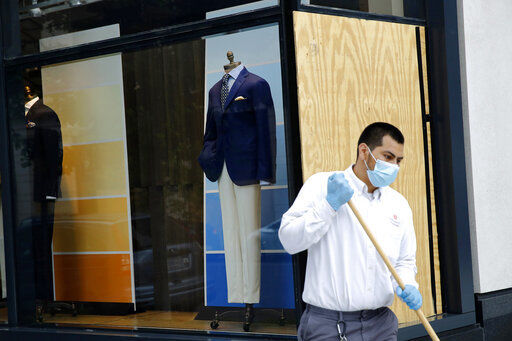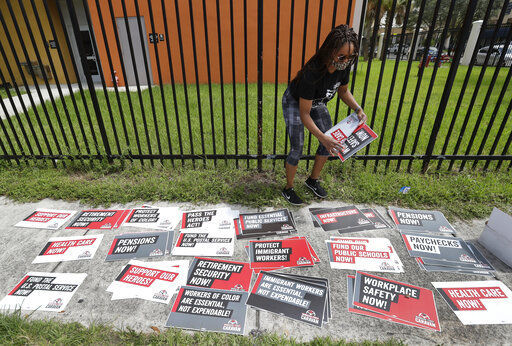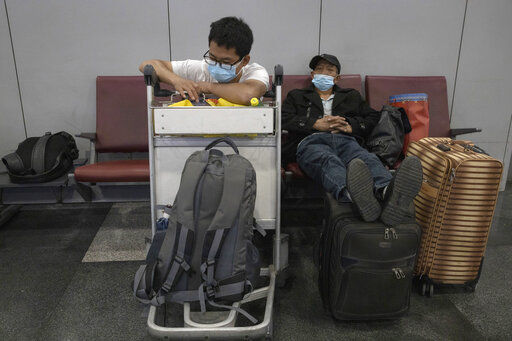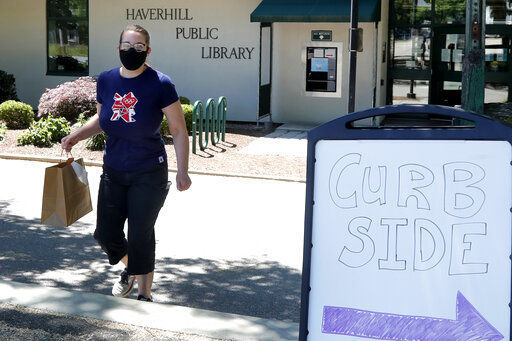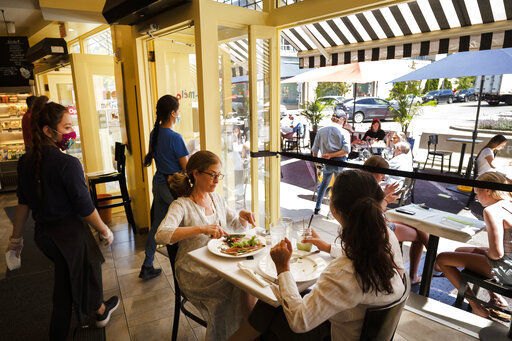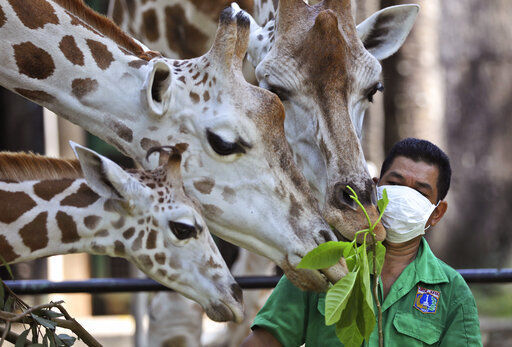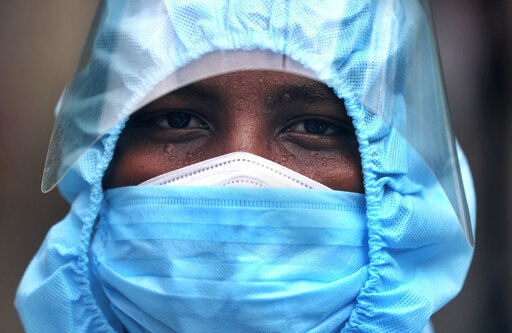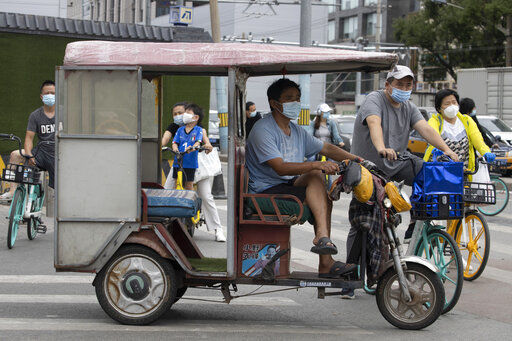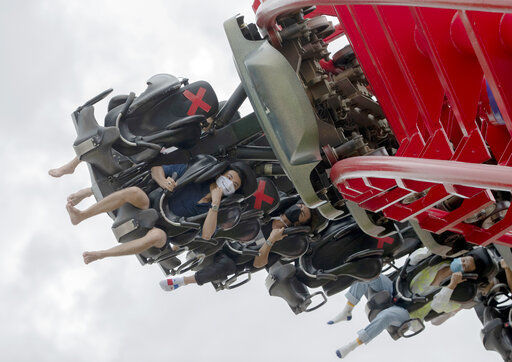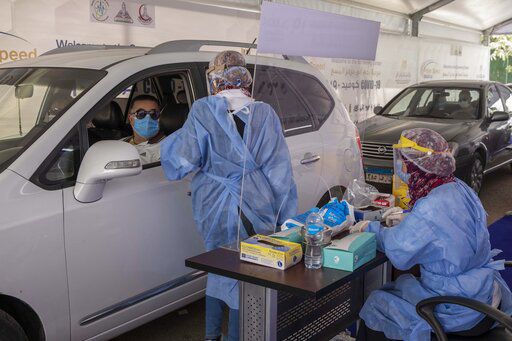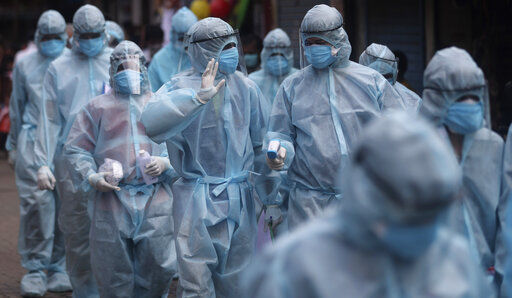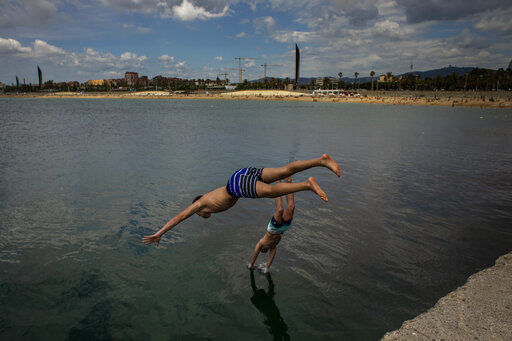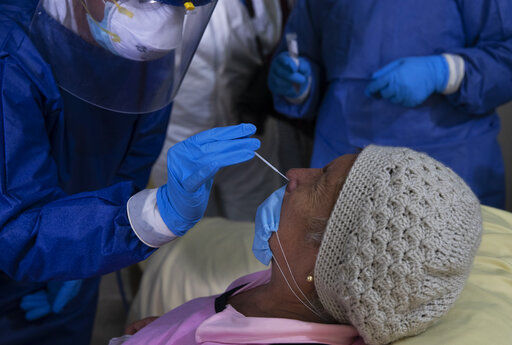PHOENIX — When the coronavirus flared in China this week, the country canceled flights, suspended reopenings and described the situation as “extremely grave.” But with cases rising in some U.S. states, local officials have balked at even requiring people to wear masks.
In the United States, which has the most confirmed cases and deaths in the world, authorities wrestled Wednesday with balancing demands for constitutional rights and personal freedom with warnings from health officials that being lax will have deadly consequences.
China responded to a new outbreak in Beijing by scrapping more than 60% of its flights to the capital, canceling classes and strengthening requirements for social distancing. It was a sharp retreat for the nation that declared victory over COVID-19 in March.
“This has truly rung an alarm bell for us,” Party Secretary Cai Qi told a meeting of Beijing’s Communist Party Standing Committee.
China’s actions follow about 137 new cases, a fraction of the number some U.S. states see each day. In Arizona, more than 1,100 people visited emergency rooms on Tuesday alone with positive or suspected cases. Alabama also is running out of hospital space, stirring impassioned debate over a mask requirement. Other states that haven’t mandated face coverings, like Texas and Florida, are seeing infections soar.
The mask debate is playing out nationwide, notably in hard-hit states where face coverings have become a political and cultural debate.
Hundreds of medical professionals signed a letter urging Arizona Gov. Doug Ducey to require them. On Wednesday, the Republican said the state will allow local governments to make policies on masks.
Ducey, who wore a mask to a news conference but took it off before speaking, said counties had vastly different rates of infection.
“For some things, a statewide directive or executive order works very well,” he said. “If you have 12 or 13 counties that say ‘pound sand’ on an executive order … it’s a self-defeating executive order.”
Ducey has resisted new restrictions on businesses, saying it would be up to mayors to enforce use of masks and attributing Arizona’s surge in cases to increased testing. The state has been doing more tests, which can yield more cases, but health experts say a better way to see if more people are getting sick is to look at the percentage of positive tests. When that percentage rises, it means the outbreak is worsening — not just that more people are getting tested.
Arizona has the nation’s highest seven-day average positive test rate: 17.7%, or about double the national average and well above the 10% threshold that health officials find worrisome. It also has the most new cases per capita in the U.S. in the past 14 days. The state’s leading hospital system says it’s almost running out of beds.
Several restaurants and other businesses have closed because staff tested positive in the last week.
The same thing is happening in parts of Florida, where people under 35 are testing positive at a higher rate since the pandemic began, contributing to a surge in cases, officials said Wednesday.
The coastal city of St. Petersburg had three popular bars close after employees tested positive, and it’s now requiring workers who have contact with the public to wear masks — which some hard-hit cities in southern Florida have been doing for weeks.
Mayor Rick Kriseman said he also plans to require people to cover their faces in businesses and other public spaces.
“We can wear a mask, protect others and ourselves, or we can contribute to someone’s death. Maybe even our own,” Kriseman said.
The Democrat said Republican Gov. Ron DeSantis has encouraged people to use masks but not mandated them.
DeSantis said he has no intention of closing Florida’s economy again despite the statewide spike in new cases, which topped 1,000 Wednesday for the 15th consecutive day. He said many of those getting sick are young and unlikely to suffer serious illness or death.
Fears about growing numbers of infections in younger people pushed officials in the San Antonio area to order masks in public as infections keep rising in Texas.
“What we are doing here is to protect the life and safety of the San Antonio community,” Mayor Ron Nirenberg said, adding that most infections in the area are in people younger than 40.
Later Wednesday, Texas Gov. Greg Abbott, a Republican, said local governments could force businesses to require customers and workers to wear masks but that he wouldn’t issue a statewide order. The second-most-populated state set daily records for new COVID-19 cases, with 3,129, and hospitalizations. The 2,793 hospitalizations mark a daily high for the 10th time in 11 days.
In Montgomery, Ala., where cases are spiking, the issue of masks erupted during a City Council meeting, where members rejected a proposal to mandate them at public gatherings of 25 or more.
Dr. Bill Saliski, a lung specialist at Jackson Hospital in Montgomery, called on the city to pass a mask requirement and declared: “If this continues the way we’re going, we’re going to be overrun.”
Some city leaders voiced concern about trampling on people’s rights.
“I think to make somebody do something or require somebody to wear something is an overreach,” councilman Brantley Lyons said.
Since the virus emerged in China late last year and spread worldwide, there have been more than 8.3 million confirmed cases and over 447,000 deaths, according to Johns Hopkins University. Experts say the true toll is much higher. The U.S. death toll has exceeded 117,000.
European nations, which embarked on a wide-scale reopening this week, watched Asia and the Americas with trepidation.
After lockdown restrictions were relaxed in Iran, Health Minister Saeed Namaki said he realized the extent of the challenge when he took a domestic flight.
“Many people have become careless, frustrated with wearing masks,” he said.


